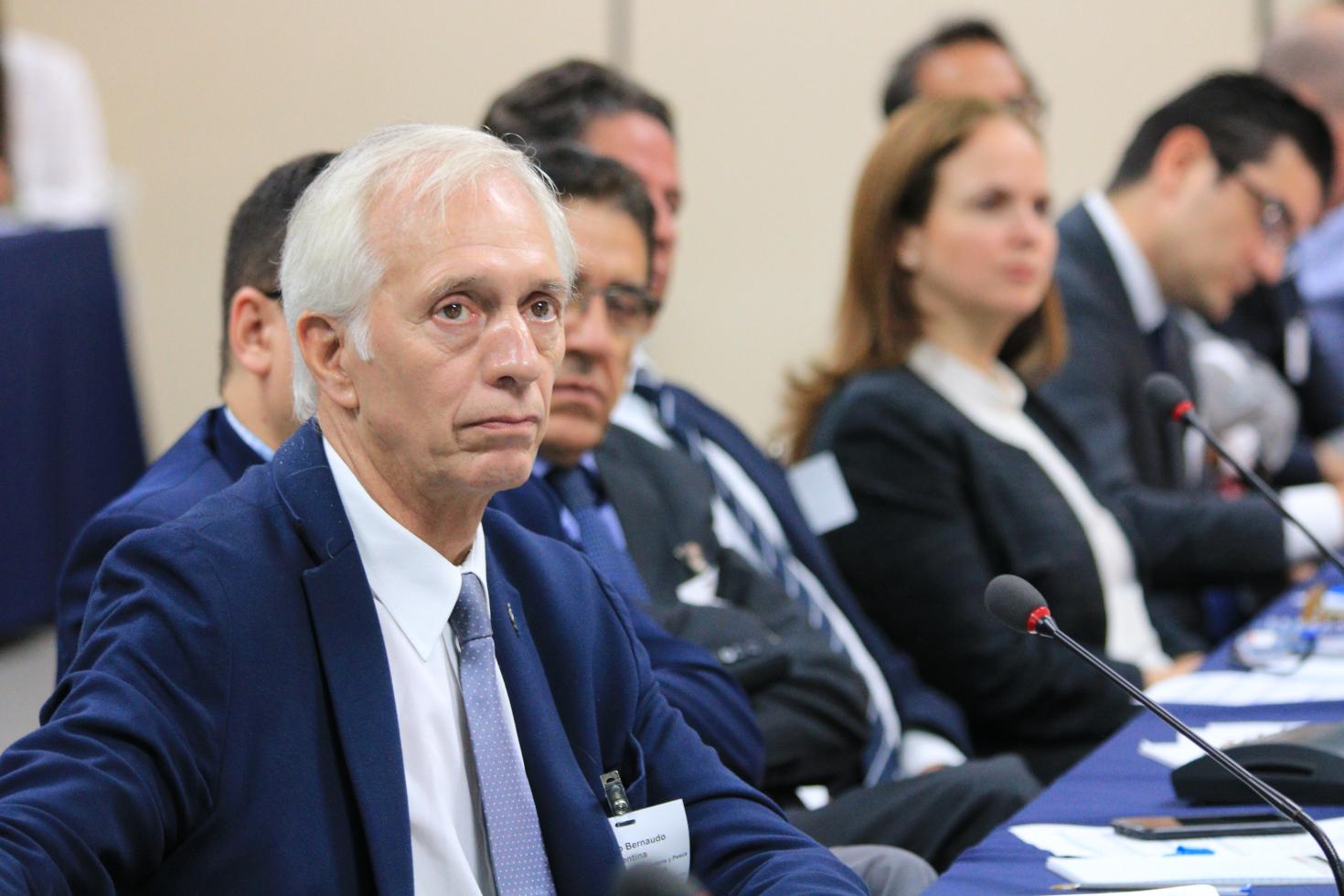The Secretary of Agriculture, Livestock and Fisheries of Argentina, Guillermo Bernaudo, participated in a workshop aimed at discussing possible future scenarios for agriculture in the face of climate change and trade disputes; he also applauded the role played by IICA.

San Jose, 22 February 2019 (IICA). Generating greater certainty regarding the ways in which climate change impacts agriculture, and drafting scenarios in which trade wars could restrict economic development.
These were two of the important considerations outlined by the Secretary of Agriculture, Livestock and Fisheries of Argentina, Guillermo Bernaudo, during a workshop related to future scenarios for agriculture in Latin America and the Caribbean. The workshop, which was organized by the World Bank, was held at the headquarters of the Inter-American Institute for Cooperation on Agriculture (IICA) in Costa Rica.
In attendance at the workshop were senior officials of government entities and international organizations, as well as producer groups, executives of multinational companies, civil society organizations, researchers and development agencies, who identified opportunities and threats that could affect food and agricultural systems in Latin America and the Caribbean (LAC) by 2030 and beyond.
The participants examined several potential future scenarios and identified actions that could be undertaken to facilitate the emergence of dynamic, productive and modern agricultural and food systems with the capacity to carry out multiple functions.
Bernaudo also highlighted IICA’s role in hosting the workshop, as well as its capacity to generate opportunities for these types of discussions and debates and to select the ideal participants. “It seems to me that that is one of IICA’s strong suits. Based on the scenarios discussed, I believe that the Institute must carry on as a representative for agriculture in the Americas.”
In this regard, the Argentine official underscored that “the diversity of American agriculture includes countries that are primarily importers as well as large food exporters, which means that IICA must identify internal agreements. Additionally, the Institute’s defense of agriculture, one of the primary activities in the Americas, is extremely valuable.”
The official also noted that, “under the aegis of the World Bank and with collaboration from IICA and other organizations, we conduct work aimed at visualizing future potential scenarios for the next 10 to 15 years for all private and public sectors related to agriculture. Drafting scenarios allows for generating capacities and channeling efforts. It is a highly productive activity.”
Bernaudo, an agricultural engineer who specializes in agricultural production, stated that the workshop allowed for identifying “two very important components: different variables for scenarios related to climate change and their potential impact on agriculture in the region, as well as commercial restrictions that could result from trade wars such as the one that is currently taking place.”
With respect to global warming, he underscored the need to generate greater “certainty regarding the manner in which it will impact agriculture,” for which it is “very important to have access to technology and infrastructure tools to deal with the situation. Trade wars represent another very grim scenario, or a component of a very grim scenario, given that they could become a factor that could significantly restrict development.”
More information:
Institutional Communication Division











